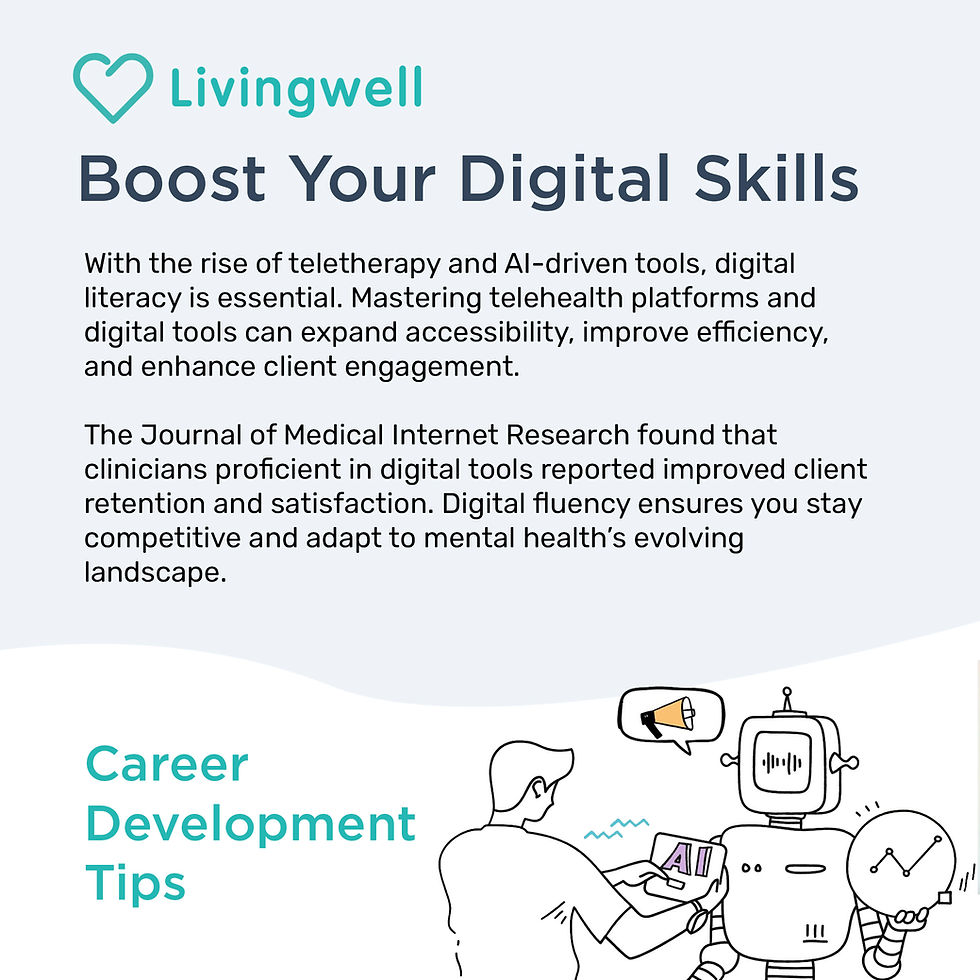Gaining Experience through Volunteering
- Livingwell

- Oct 6, 2025
- 1 min read

Volunteering in a mental health context is a highly effective way for both new and seasoned clinicians to gain practical experience, develop vital skills, and connect with the community—all while making a meaningful impact.
The Professional Benefits of Volunteering
Volunteering is more than philanthropy; it’s a career development strategy that offers hands-on, high-value experience that can't be replicated in a classroom.
Skill Development: Volunteering in crisis support roles can provide free, specialized training in essential clinical techniques like nonjudgmental communication, active listening, collaborative problem-solving, and safety planning.
Enhanced Self-Awareness and Emotional Intelligence: Engaging in real-world support helps volunteers boost their self-awareness and emotional intelligence by navigating complex challenges and managing stress in others.
Exposure to Diverse Issues: Volunteering can offer exposure to a variety of mental health challenges, including self-harm, suicide, depression, and issues faced by specific populations.
Supervision and Networking: Many structured volunteer roles, such as crisis counselling, provide direct support from a trained Supervisor who can answer questions and debrief, as well as a community to connect with other mental health professionals.
Finding and Maximising Volunteer Roles
Look for roles that align with your career goals and offer structured support:
Seek Structured Training: Prioritise opportunities that offer comprehensive, guided training in specific mental health interventions.
Leverage Flexibility: Many modern volunteering roles are remote and self-paced, making it easier to balance your commitment with your work and personal life.
Apply Skills to Your Own Life: The coping strategies and communication skills learned while supporting others often translate into stronger personal mental health and relationships with friends and family.


